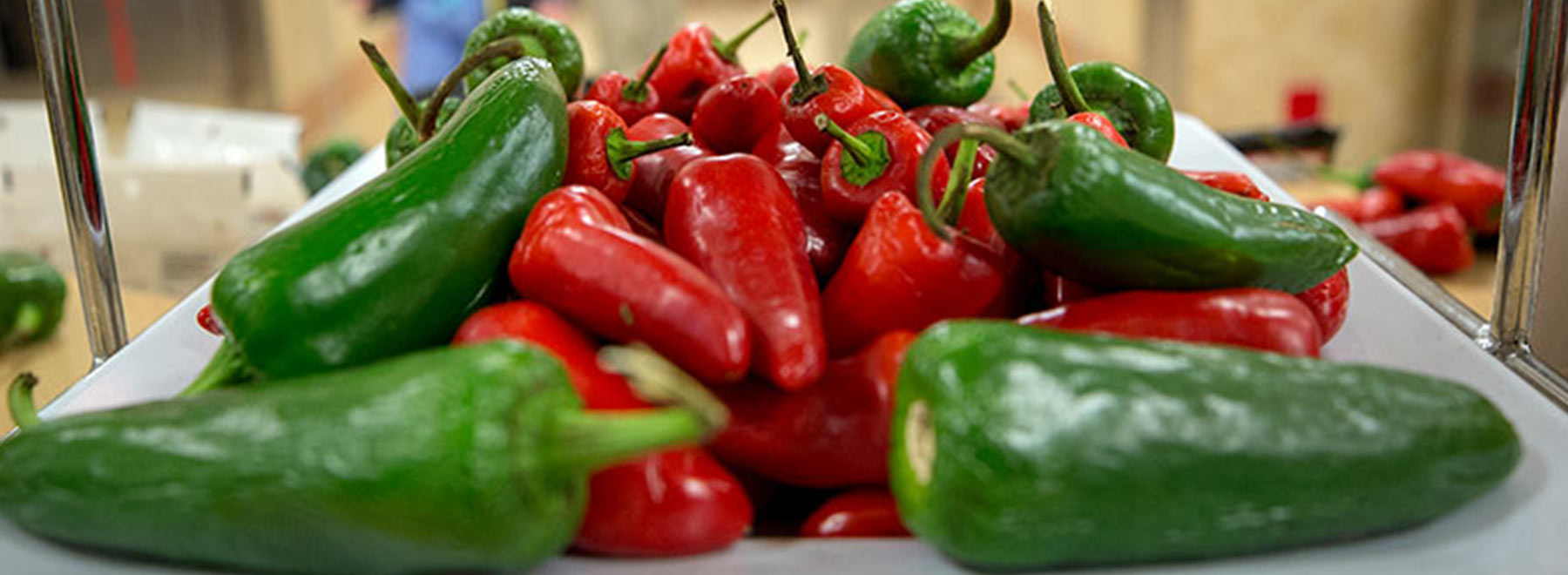Revamped menu, mindful choices give cafeteria patrons healthier options
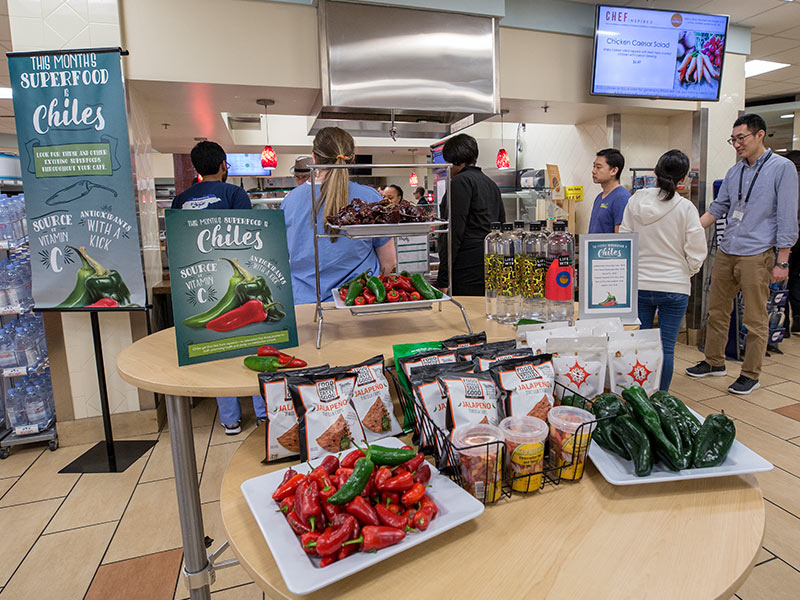
Tried a turkey burger lately?
Passed up a sugary soft drink for a low-sodium, calorie-free flavored sparkling water?
They’re two of the healthy options getting a spotlight in the University Hospital cafeteria, with selections also available in the Student Union and Wiser grills. Morrison, the University of Mississippi Medical Center’s vendor for food services, is partnering with the Department of Preventive Medicine through their Everyday Wellness initiative to give cafeteria patrons a wider selection of healthier offerings they hope will please the palate and the pocketbook.
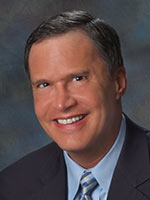
It’s based on a commitment by Morrison and the Medical Center to offer mindful choices and better communicate the value of eating a healthier diet. “The wellness piece is big in our menu changes,” said Greg Richmond, Morrison’s director of food and nutrition at UMMC.
“It’s all about people making choices,” said Cathy Taylor, Morrison’s retail operations manager and familiar face in the cafeteria. “We’re making it very obvious that some foods fall into the ‘fit’ category, and we are communicating better.”
That includes displays designed to inform diners on healthy choices at their fingertips. Some examples found in the main cafeteria:
- Just inside the entrance, a colorful, rotating “superfood” display features a healthy theme. Recently, it’s been snacks made with chili and jalapeno, both rich in antioxidants and vitamin C.
- Flavored Dasani waters for $1 can be found at the action bar facing the entrance.
- Prominent at the cash registers are changing displays of “better for you foods” that include fresh and dried fruit; whole grain bars; baked snacks or chips; and sugar-free gum or mints.
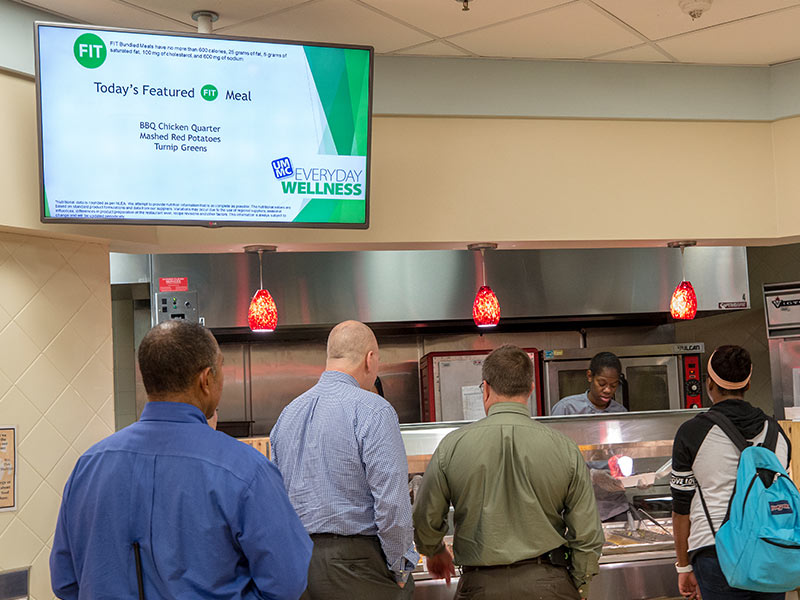
Absent at the registers will be desserts or candy, regular chips, and snacks with candy, chocolate or candy-coated pieces. They must be at least five feet away as part of Morrison’s Mindful Choices initiative. “We still have cookies,” Taylor said. “They’re just not at the register.”
The Everyday Wellness push is designed not to tell people what they must eat, but to give them healthy options, said Brea Cole, manager of the medically integrated wellness program for Preventive Medicine. “We want to help instill better decision-making on their way of eating, and to help them make better choices,” she said.
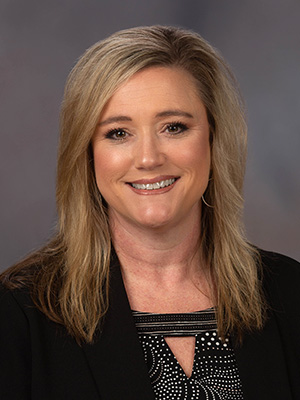
“That’s why the cafeteria is working hard to provide nutritional information,” she said. “Even at the grill, you can go through the line and see how many calories are in a serving of fries.”
A number of entrees are being “bundled” with sides to create “FIT” meals. One example: a turkey burger, choice of fresh fruit, and choice of water, tea or a fountain beverage for $5.49. “Turkey burger sales have gone up 200 percent because of the bundled FIT meal,” said John Knowlton, Morrison’s retail cafeteria manager.
And at “The Main Dish” hot food line, be aware of calorie counts given for each item, with a reminder that 2,000 calories daily is used for general nutrition advice, but that calorie needs vary for each person.
The changes haven’t been lost on Kate Feldman, director of adult physician relations. “I can honestly say that I have been eating in the cafeteria more, and while I don’t always make the healthiest decision every time, I do like that calorie content is included, and that I have a greater awareness for how many calories I am consuming,” Feldman said.
“I absolutely agree on healthier options for employees so we can embody the healthy habits that we recommend to our patients,” said Dr. Stephen Powell, a second-year family medicine resident. “I think it’s easier to get through the day without being dragged down by grease.”
Taylor said staff works hard to offer options that are cost-friendly. Twice annually, she said, a pricing analysis is conducted to compare the cost of food here with regional pricing. “Sometimes that means we raise our prices, and sometimes it means we lower them,” she said.
“The perception of some people is that cafeteria food should be dirt cheap, but we’re trying to give them quality and at the same time have reasonable prices,” she said. “We’re always conscious of our pricing.”
Eating healthy. Cole said, doesn’t look the same for everyone. That’s especially important because a number of UMMC employees and students cope with chronic diseases ranging from diabetes to hypertension to obesity. “We want them to know what a healthy plate looks like,” Cole said.
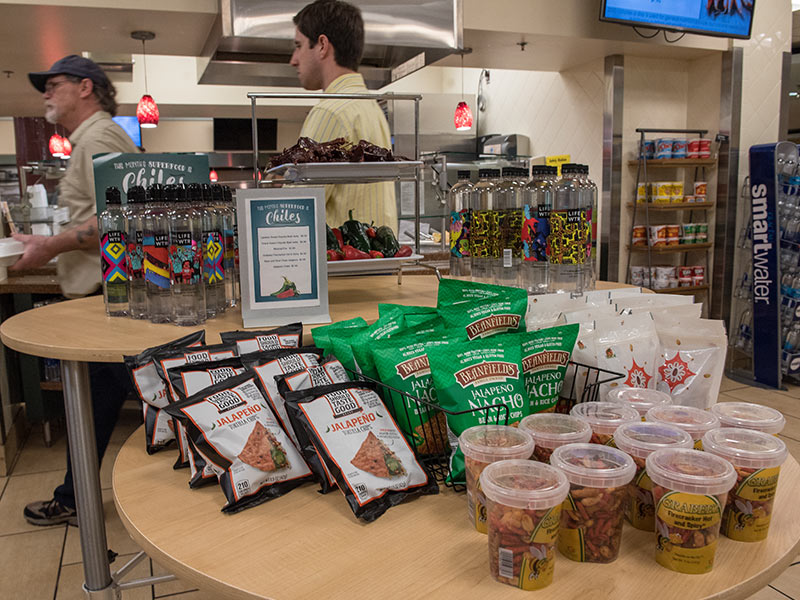
Keep an eye out in March at the check-out lines. “We will refresh them with new healthy snack options. It will be a broader variety,” Knowlton said. And, look for expanded cafeteria hours, including fare being available at the action station after 2 p.m. rather than closing it shortly before then.
It all comes down to ensuring that cafeteria patrons have good nutritional information at their fingertips and the power to pick what pleases them, Cole said.
“People want options. If there’s a day where they want a cheeseburger, then they can get a cheeseburger,” she said. “People want to be able to make the choice.”
That’s true for clinical anatomy program graduate assistant Edgar Meyer, who often brings his lunch, but still gets by the cafeteria.
“I like both the healthy and the unhealthy options,” he said. “There have been occasions when the healthier option actually swayed my decision from choosing a hamburger or a fried chicken sandwich.”
Comments or suggestions on food offerings? Send an email to DiningServices@umc.edu.


